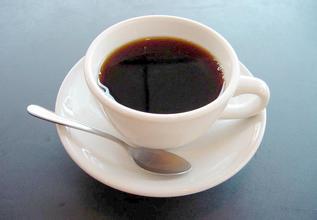Introduction of Tanzania boutique coffee beans Kilimanjaro Coffee Flavor taste Manor
Antigua Island (Antigua) is a famous producer of coffee. Rich volcanic soil, low humidity, strong sunlight and cool night winds are the characteristics of Antigua. Three spectacular active volcanoes ── Agua, Acatenango and Fuego form a beautiful valley. Fuego active volcano also adds misty dust from time to time. Every 30 years or so, the area near Antigua is hit by a volcanic eruption, which provides more nitrogen to the already fertile land, and plenty of rainfall and sunlight make the place more suitable for growing coffee. Antigua coffee is produced in Camana Manor, where the best quality coffee is ELPulcal, which is not only of good quality, but also, when compared with other Latin American coffees, this coffee is quite complete, rich and astonishing, and you will find it unexpected if you enjoy it with chocolate. The most important thing is that it has a very rich flavor and a richer taste, and it has a fascinating tobacco flavor and is known as the "most perfect coffee bean" Antigua coffee. The charm of Antigua lies in its balanced and refreshing acidity, rich spice and unique smoky taste, as if to tell us about the desolate history of Antigua in Guatemala. The aroma of coffee liberates all forms, hearts and national boundaries. Through coffee, the mood leaves the country at any time and lands in a strange country half a world away. Even at the end of the world, you can share a mood. Antigua was the capital of the Spanish colonial period in 1543. Although this emerald-like valley has been surrounded by active volcanoes in all directions, layered, deliberately waiting and full of dangers since ancient times, its vastness, vastness and fertility still tempted Spaniards to build a capital in the precarious cliff valley. The volcano once destroyed the once-prosperous capital in an instant, robbing it of all its prosperity and beauty overnight. After this subversive mountain city, the splendor of more than 200 years has disappeared, and Antigua has never swaggered. After being dull, Antigua is now run by the last remaining Indians. These hardworking Indians became later coffee producers. They not only discovered the rich and attractive unique smell of Antigua coffee, but also brought it to people all over the world. Today, Antigua coffee enjoys a reputation as the best quality coffee in the world, and is praised by coffee connoisseurs as the best and most unusual coffee in the world. Tanzania coffee is mostly washed. After picking, coffee farmers will send the coffee fruit to the nearest processing plant for processing. The treatment step of the water washing method is to screen and remove the impurities in the coffee fruit, then remove the coffee pulp and exocarp, and send it into the fermentation tank to remove the pectin layer on the inner pericarp by fermentation. clean and then dry. Coffee in Tanzania is graded in the same way as in Kenya, both according to the size of coffee beans. When screening, let the raw coffee beans pass through the screen with fixed size holes. The larger the number of the screen is, the larger the particles of the raw coffee beans are. The flat beans classified by size are mainly AA+, AA and AB. In addition, PB (peaBerry), which is widely produced in Kenya and Tanzania, also has a set of sieve size standards, which specifically classify the size of round beans.
Mount Mount Kilimanjaro, located in northeastern Tanzania, is the highest mountain in Africa at 5895 meters above sea level. The ultra-high altitude makes the top of the mountain snow all the year round, while Tanzania's main coffee producing area is located at the foot of Mount Kilimanjaro. The area is rich in volcanic soil, which brings an adequate supply of nutrients for the growth of coffee trees. Coffee trees are generally planted in areas above 1150 meters above sea level, which is one of the prerequisites for Arabica to form a high-quality flavor.

Important Notice :
前街咖啡 FrontStreet Coffee has moved to new addredd:
FrontStreet Coffee Address: 315,Donghua East Road,GuangZhou
Tel:020 38364473
- Prev

Balanced and refreshing Guatemala coffee flavor taste estate production area introduction Guatemala coffee characteristics fine
Antigua is a famous coffee producer, rich volcanic soil, low humidity, strong sunlight and cool evening winds are the characteristics of Antigua. Three spectacular active volcanoes-Agua, Acatenango and Fuego-form a beautiful valley. Fuego active volcano also occasionally adds misty dust. every 30
- Next

Mexican coffee flavor with intense sweet taste Manor introduction Mexican fine coffee
Aldumara coffee beans are Mexico's top coffee beans, which are large in size, with intense sweetness, acidity and good aroma. Mexicans are optimistic and enthusiastic by nature. It can also be seen from their coffee. The mellow Mexican coffee is not only loved by the native people, but also praised by many coffee connoisseurs. How to taste Mexican coffee
Related
- Detailed explanation of Jadeite planting Land in Panamanian Jadeite Manor introduction to the grading system of Jadeite competitive bidding, Red bid, Green bid and Rose Summer
- Story of Coffee planting in Brenka region of Costa Rica Stonehenge Manor anaerobic heavy honey treatment of flavor mouth
- What's on the barrel of Blue Mountain Coffee beans?
- Can American coffee also pull flowers? How to use hot American style to pull out a good-looking pattern?
- Can you make a cold extract with coffee beans? What is the right proportion for cold-extracted coffee formula?
- Indonesian PWN Gold Mandrine Coffee Origin Features Flavor How to Chong? Mandolin coffee is American.
- A brief introduction to the flavor characteristics of Brazilian yellow bourbon coffee beans
- What is the effect of different water quality on the flavor of cold-extracted coffee? What kind of water is best for brewing coffee?
- Why do you think of Rose Summer whenever you mention Panamanian coffee?
- Introduction to the characteristics of authentic blue mountain coffee bean producing areas? What is the CIB Coffee Authority in Jamaica?

